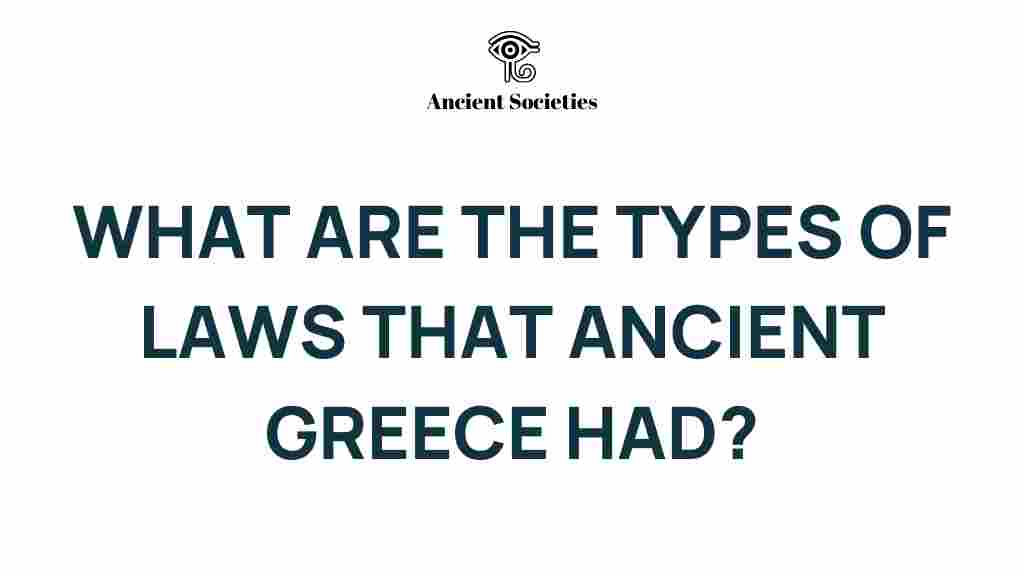Unraveling the Legal Tapestry of Ancient Greece: A Deep Dive
Ancient Greece, an influential cradle of civilization, laid the groundwork for many modern legal systems, philosophies, and concepts of governance. The intricate laws and rich cultural history of this ancient society offer a profound understanding of how legal systems evolve and adapt over time. In this article, we delve into the laws, legal systems, democracy, culture, history, society, philosophy, and governance of Ancient Greece.
The Birth of Legal Systems in Ancient Greece
Legal systems in Ancient Greece were not monolithic; they varied significantly across city-states. However, they shared common themes that reflected the values and societal norms of the time. The development of laws was deeply intertwined with the evolution of democracy and governance.
- City-States and Their Laws: Each city-state, or polis, had its own set of laws. The most notable were Athens and Sparta, each embodying different legal principles and governance structures.
- Codification of Laws: The first known codification of laws in Ancient Greece was attributed to Draco in Athens around 621 BCE. His laws were famously harsh, giving rise to the term “draconian.”
- Solon’s Reforms: Solon, a statesman and poet, reformed Draco’s laws around 594 BCE, introducing more equitable laws and a more democratic form of governance.
The Role of Democracy in Ancient Greek Society
Democracy in Ancient Greece, particularly in Athens, marked a significant turning point in legal governance. It was characterized by the direct participation of citizens in decision-making processes.
- Citizen Participation: Only free male citizens over the age of 18 could participate in the Assembly, where laws were debated and voted upon.
- Judicial System: The Athenian court system allowed citizens to act as jurors. This set a precedent for participatory governance and legal representation.
- Equality Before the Law: The idea that all citizens should be treated equally under the law emerged during this period, influencing future legal principles.
The Influence of Philosophy on Ancient Greek Laws
Philosophy was integral to the formulation of laws in Ancient Greece. Thinkers like Plato and Aristotle examined the nature of justice, governance, and the role of laws.
- Plato’s Ideal State: In his work “The Republic,” Plato discussed the concept of justice and the importance of philosopher-kings as rulers, emphasizing the ethical foundations of laws.
- Aristotle’s Politics: Aristotle analyzed different political systems and proposed that laws should serve the common good, advocating for a balanced government.
Understanding the Legal Procedures
The legal procedures in Ancient Greece were unique and varied by city-state. Here’s a closer look at how they operated:
- Litigation: Individuals could bring cases to court, often representing themselves, as lawyers were not a standard element of the legal system.
- Evidence and Testimony: Witnesses played a crucial role in trials, as their testimonies were vital for the jury’s deliberation.
- Punishments: Punishments varied widely, from fines to exile and even death, depending on the severity of the crime.
The Societal Impact of Laws in Ancient Greece
The laws of Ancient Greece significantly influenced its society and culture. Understanding this impact provides insight into the values and beliefs of the time.
- Social Hierarchies: Laws often reinforced social hierarchies, with citizenship being a prerequisite for legal rights.
- Gender Roles: Women had limited legal rights, often dependent on male guardians, reflecting the patriarchal nature of society.
- Religious Laws: Many laws were intertwined with religious practices, with legal codes often reflecting the will of the gods.
Challenges in the Legal System
While Ancient Greece laid the foundations for modern legal systems, it faced several challenges:
- Corruption: Bribery and corruption were prevalent, undermining the fairness of trials.
- Class Struggles: Tensions between different social classes often influenced legal outcomes.
- Political Turmoil: The rise and fall of various governments affected the stability of laws and their enforcement.
Legacy of Ancient Greek Laws
The legal systems of Ancient Greece have left a lasting legacy on modern governance and law. Their influence can be seen in various aspects:
- Concepts of Justice: The philosophical inquiries into justice laid the groundwork for contemporary legal theories.
- Democratic Principles: The democratic practices of Ancient Athens inspired modern democratic systems worldwide.
- Codification of Laws: The practice of codifying laws has become a standard in legal systems globally.
Conclusion
Unraveling the legal tapestry of Ancient Greece reveals a complex interplay of laws, culture, society, and philosophy. The evolution of their legal systems set the stage for modern governance and legal frameworks. Understanding the principles that shaped Ancient Greek laws not only enriches our knowledge of history but also highlights the enduring impact of their ideas on contemporary society. For further exploration of the fascinating interplay between democracy and legal systems throughout history, check out this comprehensive guide.
As we reflect on the legacy of Ancient Greece, we recognize that the principles of justice, equality, and governance that emerged from this ancient civilization continue to resonate in our legal systems today. The study of Ancient Greek laws is not just an academic pursuit; it is a vital link to understanding our own societal structures and cultural values.
To learn more about the profound influence of Ancient Greece on modern law and governance, explore resources like this informative article that delves deeper into the subject.
This article is in the category History and created by AncientSocieties Team
